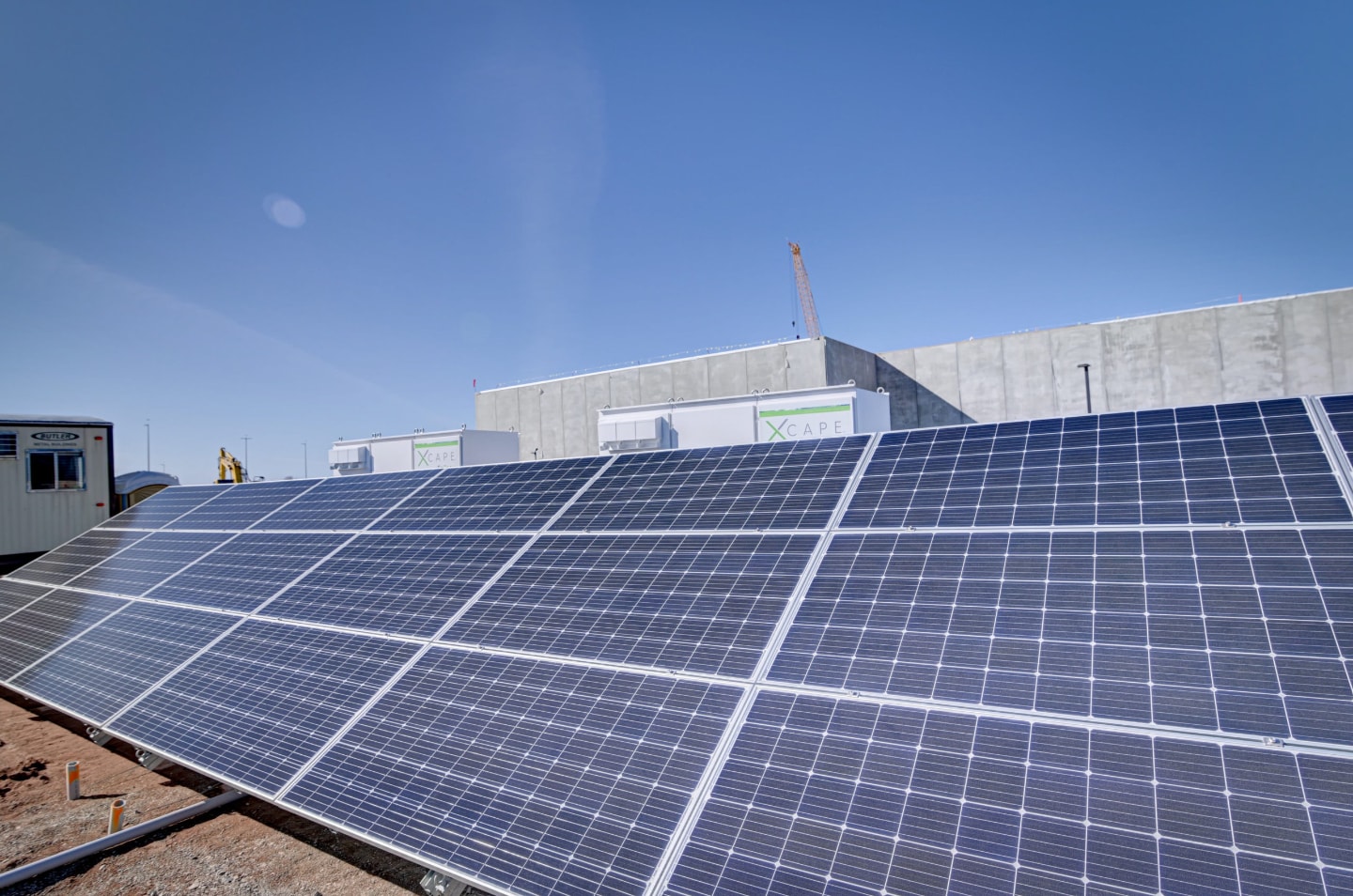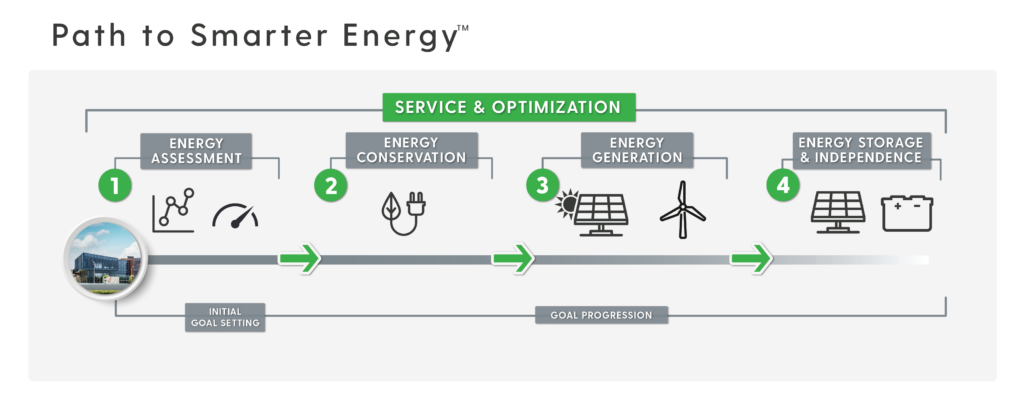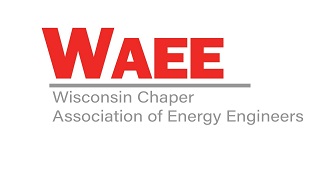
By Guest Author: Dale Ripp
People used to think that solar energy was only a viable option for traditionally sunny states, mainly in the southern U.S. These days, solar has become a mainstream option throughout the country and the world. In fact, solar is a very attractive alternative for most organizations for a variety of reasons:
Reasons Organizations are Adding Solar Power
- The overall cost of energy continues to increase, motivating interest in other options.
- Demand for electricity is growing, creating a supply gap that needs to be filled by means other than the utility grid.
- Technology has improved, enabling users to get the same amount of energy from fewer panels.
- Incentives and tax credits are readily available to reduce costs and improve your return on investment (ROI).
- Sustainability goals are becoming more popular and ambitious, driving renewable energy adoption.
If you are not at least considering incorporating solar energy into your business operation, you may be falling behind. The time has come to learn how solar can help your business reach its energy goals.
The Role of Renewable Energy
One of the most common confessions companies share with us is that they feel so overwhelmed by how to best manage their utility usage that they put off learning about it. To help bridge this gap, we created a step-by-step approach to help organizations determine their best path forward. We call it The Path to Smarter Energy.
Our goal is to help you be as efficient as you can with the power you currently purchase, followed by developing a long-term plan that can hedge some of those costs going forward. We start by assessing your energy needs and current usage. Then we formulate a plan to make your business as energy efficient as possible by maximizing your conservation efforts. If you skip these first two steps in the Path to Smarter Energy, you risk spending more on the renewable solution than needed. That extra cost could have been put toward energy conservation efforts, followed by properly sizing your renewable solution, a win/win for your business and the environment.
Once we have determined your true energy requirements and have established the most efficient operational environment, step three on the Path to Smarter Energy examines your best options for renewable sources of energy. In most cases, that means solar power.
What Makes Solar Power So Popular?
Solar’s popularity comes from the numerous advantages it offers. Some of the positives of solar include:
- No moving parts, which means minimal operation and maintenance cost over the lifetime of the system.
- Performance warranties on all major solar components for most of the system’s useful life (25 to 30 years).
- Multiple installation options such as rooftop, ground-mounted or carport arrays, depending on the available space and budget.
- Minimal impact on business operations during installation, with most the work on the roof or land outside. The only shutdown needed is to tie the system to the existing electrical grid, which can be scheduled for the most optimal time.
- Solar installations are package priced as full turn-key solutions. At EnTech Solutions, we can manage the entire project from assessment to design, procurement, construction and installation, making the process simple and the price easy to anticipate. The ROI for solar increases with time. Since energy costs continue to rise historically, the steady generation of solar energy helps insulate your business from those rate increases.
Your best bet when researching renewable energy options is to enlist the assistance of a full-solutions provider like EnTech Solutions. We’ll ensure you get the best energy option to meet your needs, considering all Distributed Energy Resource (DER) options like solar, wind, hydro and renewable natural gas systems as needed.
How to Get Started with Solar Energy
While solar energy projects may feel more like a want than a need, ultimately these projects may become inevitable. The sooner you get started, the better your ROI will be over the long term. If you are ready to explore this possibility, here’s what to expect:
- Solar Discovery Phase. Once you reach out to EnTech Solutions, we will walk you through a process for determining whether solar is a feasible and viable solution, something we never simply assume. By evaluating your site and assessing your energy requirements, we can anticipate any issues from the start, improving your chances of success. This phase includes establishing project goals and qualifying the site and structures.
- Initial Budget. Once we understand your goals, we use a number of software programs like our Energy DNA™ modeling software or others to create a potential design. Using our in-house subject matter experts, we research all available incentives and tax credits to maximize the ROI of the project. Earlier in the project development we use rough order of magnitude (ROM) pricing to provide you with the information needed to navigate your internal approval process. Once we have the financial information, we prepare a solar report that is easy to follow and share with key decision makers.
- Sourcing and Scheduling. Once the contract is approved, we officially source and order all required components, equipment and materials needed to complete your solar project. This provides us with a final budget and establishes a timeline based on lead times for equipment.
- Construction and Installation. While many variables can affect the final schedule, most rooftop solar projects require approximately four-to-six weeks for completion once the contract is signed. Building in the Discovery and Approval phases, the entire process can take a year or more, which is why we recommend starting the process sooner than later.
As the push for electrification continues and demand for energy increases, solar and other renewables will become standard pieces of your operational puzzle. We expect most facilities to include some level of solar energy in the near future. The sooner your company gets started, the more likely you will be able to take advantage of government incentives and tax credits to give you the best ROI possible.
Contact us for more information about getting started on The Path to Smarter Energy. We can help you determine whether solar is right for you.
Dale Ripp is an energy engineer with Faith Technologies, a sister division to EnTech Solutions.
Thank you for checking out the EnTech Solutions blog. To stay up to date with technologies, developments and trends about clean energy, please subscribe.









